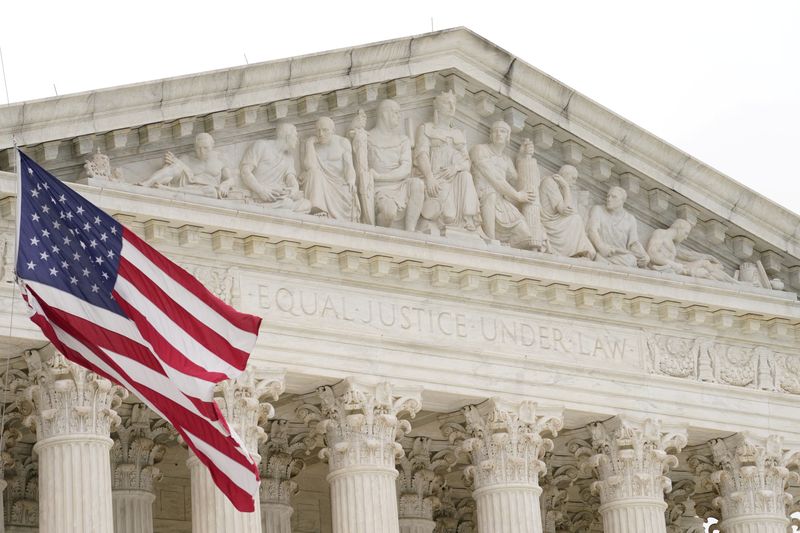By Andrew Chung
WASHINGTON (Reuters) -The U.S. Supreme Court on Tuesday declined to revive a newspaper's challenge on free speech grounds to an Arkansas law requiring state government contractors to pledge not to boycott Israel, a policy the publication's lawyers called a threat to a constitutionally protected form of collective protest.
The justices turned away an appeal by the Arkansas Times, represented by the American Civil Liberties Union, of a lower court's ruling dismissing its lawsuit that claimed that the measure punishes participation in political boycotts based on the viewpoint expressed in violation of the U.S. Constitution's First Amendment guarantee of free speech.
The Arkansas law, passed in 2017, requires public contracts to include a certification that the contractor is not engaged in a "boycott" Israel, which includes "actions that are intended to limit commercial relations" with Israel or "Israeli-controlled territories." It applies to contracts worth at least $1,000.
More than half of U.S. states have similar laws barring contractors that refuse to do business with Israel, including as part of the international "boycott, divestment and sanctions" movement that seeks to pressure Israel economically over its treatment of the Palestinians including Jewish settlements in the occupied territories. Israel has called such boycotts discriminatory and anti-Semitic.
The Arkansas Times sued in 2018 after it was informed that in order to run advertisements for the University of Arkansas Pulaski Technical College, an institution with which it had advertising contracts for years, it would have to sign the certification.
The paper had not participated in a boycott against Israel but refused to sign because it said the measure required taking a political position in return for advertising.
A full slate of 10 judges on the St. Louis-based 8th U.S. Circuit Court of Appeals last year dismissed the challenge, upholding the law as one that does not violate the First Amendment because it affects only commercial conduct, not expression.
"It does not ban Arkansas Times from publicly criticizing Israel, or even protesting the statute itself. It only prohibits economic decisions that discriminate against Israel," the 8th Circuit concluded.
In its appeal to the Supreme Court, the ACLU argued that the state's actions were prohibited under an important 1982 Supreme Court free speech ruling called NAACP v. Claiborne Hardware Co. In that decision, the court decided that nonviolent boycott activity is constitutionally protected in a case involving a lawsuit by white-owned businesses in Mississippi to recover losses stemming from a 1966 racial-justice boycott.

The ACLU said boycotts are an "enduring part of the fabric of American public discourse," citing as examples 18th century Revolutionary War era boycotts of British goods, the Montgomery bus boycott challenging racial segregation in the 1950s and more recently boycotts of companies that support abortion provider Planned Parenthood and boycotts of companies that support the National Rifle Association gun rights lobby.
Allowing the Arkansas law to stand would strike a serious blow to American freedoms of expression and assembly by "empowering policymakers to suppress political boycotts that express disfavored messages," the ACLU said.